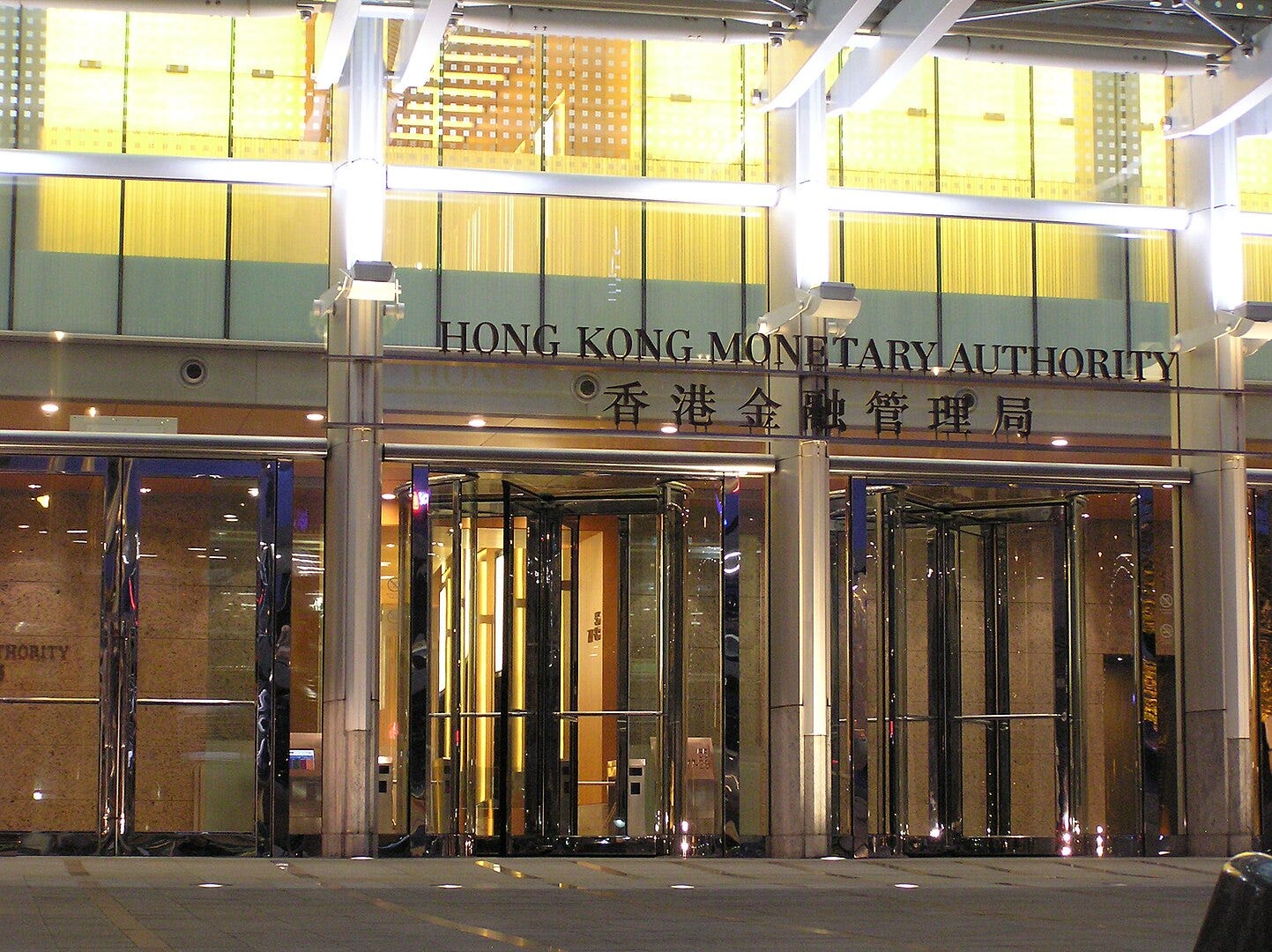
Hong Kong’s Crypto Bet Is Starting To Pay Off
Hong Kong’s Crypto Bet Is Starting To Pay Off
Executive Summary:
- Hong Kong launched a new stablecoin regime on August 1, continuing its cautious embrace of emerging financial products nearly three years after declaring its intention to become a digital assets hub.
- In anticipation of the new regime, July saw a flurry of fundraising activity by listed fintech companies, indicating that the city’s repressive political environment is unlikely to stifle the growth of the digital assets sector.
- The eventual success of Hong Kong’s current experiment will depend on both Beijing’s permissiveness and on global competition. The Monetary Authority of Singapore is also promoting similar digital token and stablecoin regimes, while the U.S. government is keen to establish its own leadership in the sector.
Hong Kong’s stablecoin regime came into effect on August 1, the latest in a series of regulatory moves that support its ambitious goal of becoming Asia’s premier digital assets hub (Hong Kong Monetary Authority [HKMA], July 29; Xinhua, August 1). Stablecoins (cryptocurrencies backed by fiat currencies or commodities to reduce volatility) have more than doubled in market capitalization since the beginning of 2024 to reach nearly $270 billion (DeFiLlama, August 3). While they are mostly used for trading crypto assets, stablecoins also are increasingly used for cross-border payments and corporate treasuries.
The Hong Kong Monetary Authority (HKMA) noted in a June statement that the former British Crown Colony is among the first jurisdictions to put in place a regulatory framework for stablecoin issuers following its rollout of a regulatory sandbox in March 2024. “Considering the novelty and potential risks of stablecoins, the need for user protection, market capacity and long-term development, we expect to set a high bar for licensing. It is envisaged that only a handful of licenses will be granted initially,” said HKMA chief executive Eddie Yue (余偉文) (HKMA, June 23).
That caution characterizes Hong Kong’s overall approach to digital assets. The city has been strict about its issuance of licenses for crypto exchanges, too, causing a number of applicants to withdraw from the process. Yet there is no question that its efforts are bearing fruit. In the year to September 2024, Hong Kong was the fastest growing digital assets market in East Asia, expanding more than 85 percent annually (Chainalysis, September 11, 2024). More recently, there has been a flurry of equity fundraising in anticipation of the new stablecoin regime.
While some of the recent momentum is linked to broader market exuberance as the United States takes a pro-crypto turn in the second term of President Donald Trump, Hong Kong nonetheless looks prescient nearly three years after it declared its intention to become a digital asset hub (The White House, January 23).
Crypto Fundraising Boom
In anticipation of Hong Kong’s stablecoin regime coming into effect, there was a flurry of fundraising activity in July by listed fintech companies in the city. A Reuters calculation based on exchange filings found that at least 10 Hong Kong-listed companies raised more than $1.5 billion from share placements in July to be invested in areas including stablecoins, digital assets, and blockchain-based payments. They include digital asset platform OSL Group, the People’s Republic of China’s (PRC) leading retail solution cloud provider DMall, and artificial intelligence giant SenseTime Group.
OSL Group’s $300 million equity raise in July was the largest public fundraising in Asia’s digital asset sector to date. “The funding will accelerate our global buildout—particularly in regulated payment infrastructure and access points” (這筆資金將加速我們的全球布局—尤其在合規支付基礎設施和網絡建設領域) CEO Ivan Wong (黃冠文) said in a statement (Hong Kong Commercial Daily, July 25).
DMall announced to investors on July 3 that it planned to apply for a stablecoin license together with HashKey, Hong Kong’s largest licensed virtual asset exchange (China Brief, June 7, 2024). DMall and HashKey plan to explore stablecoin use in retail payments and “jointly promote the issuance and popularization of stablecoins, to help Hong Kong become an important hub for the development of the global digital asset ecosystem,” according to the announcement (Hong Kong Exchanges and Clearing, July 3).
SenseTime announced on July 31 that it had completed a capital raise of HK$2.5 billion ($320) million and received funding from strategic investment firm Infini Capital, which is dual headquartered in Hong Kong and Abu Dhabi (Sina Finance, August 1). The company confirmed that 20 percent of the net proceeds, around HK$500 million ($64 million) would be allocated to blockchain, stablecoins, real-world assets, and embodied intelligent robotics (Coinfomania, July 24).
A Rejuvenated Financial Center
The fast-growing digital assets market in Hong Kong, though nascent, suggests that the city is successfully reinventing itself as a financial center, albeit more PRC-oriented than in the past. The sweeping crackdown that began in 2020 with Beijing’s imposition of national security legislation has squelched Hong Kong’s once-thriving media and NGO sectors as well as effectively eliminated organized political opposition to the ruling Chinese Communist Party (CCP), but it has not affected the city’s financial freedom—at least not yet.
Indeed, whether by design or coincidence, Hong Kong’s transition into a hub for digital assets illustrates that the logic of “One Country, Two Systems” persists when it comes to the financial sector. The use of cryptocurrency is still tightly controlled on the mainland, with certain activities deemed illegal, but Hong Kong has been permitted to develop its digital assets sector with minimal interference from Beijing.
The increasing involvement of mainland firms in the crypto sector via Hong Kong suggests that the city could become a testbed for cryptocurrency use cases that could later be transferred to the mainland. To that end, Guotai Junan Securities in June became the first mainland brokerage to win approval to provide digital-asset trading services including Bitcoin, Ethereum, and stablecoins (Guotai Junan International, June 25).
Conclusion
These are early days for Hong Kong as a digital asset hub, but it is making rapid progress thanks to a clear regulatory vision, support from Beijing manifested in the central government’s hands-off approach, and strong investor demand. While the city’s political environment more closely resembles the mainland, that is unlikely to stifle the growth of the digital assets sector, especially when the biggest investors are from the PRC mainland themselves.
Hong Kong is likely to face tough competition from Singapore, however, which also has aspirations to be a digital asset hub and is seen as more globally oriented. The Monetary Authority of Singapore (MAS) has similarly made announcements in recent months on the progress of its digital token service providers regime and of “Project Guardian,” a collaboration with industry to support “trials involving multiple currencies and across various financial products, including tokenized funds, bonds, stablecoins, and bank liabilities” (MAS, June 6, August 4). If Hong Kong’s plans are to succeed, it will need to focus on ensuring the right balance of regulatory oversight and policies that are conducive to market growth.


